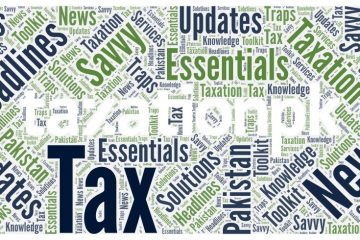Pakistan has a federal system of government, with power divided between the federal government and four provincial governments. Each province has the power to levy and collect taxes under the Constitution of Pakistan. In this article, we will explore the provincial taxes in Pakistan and their impact on the economy.
Provincial Taxes in Pakistan
Each province in Pakistan has its own tax authority responsible for levying and collecting taxes. The types of taxes levied by each province may vary, but they generally include sales tax, excise tax, property tax, and other local taxes.
- Sales Tax: Sales tax is a tax on the sale of goods and services within a province. Each province has its own sales tax rate, which may vary depending on the type of goods or services being sold. The sales tax is collected by the provincial government and is an important source of revenue for the province.
- Excise Tax: Excise tax is a tax on specific goods, such as cigarettes, alcohol, and petroleum products. Each province has its own excise tax rates, and the tax is collected by the provincial government. Excise taxes are often used to discourage the consumption of harmful or luxury goods.
- Property Tax: Property tax is a tax on real estate property, such as land and buildings. The tax is levied by the provincial government and is based on the assessed value of the property. Property tax is an important source of revenue for the provincial government and is often used to fund local services, such as road maintenance and garbage collection.
- Other Local Taxes: Provinces may also levy other local taxes, such as motor vehicle taxes and entertainment taxes. These taxes are typically collected by the provincial government and are used to fund local services.
Impact of Provincial Taxes on the Economy
Provincial taxes play an essential role in funding provincial governments and providing services to the people of Pakistan. However, the impact of provincial taxes on the economy may vary depending on the tax structure and implementation.
Provincial taxes may have an impact on the competitiveness of businesses operating in the province. Higher tax rates may discourage investment and make it more difficult for businesses to compete in the global market. Additionally, provincial taxes may have a regressive impact on low-income households, who may bear a disproportionate burden of the tax.
On the other hand, well-designed provincial tax policies can promote economic growth and development. For example, tax incentives for small and medium-sized enterprises can encourage entrepreneurship and job creation. Additionally, revenue generated from provincial taxes can be used to fund infrastructure projects, such as roads, schools, and hospitals, which can stimulate economic activity and improve the quality of life for the people of Pakistan.
Conclusion
Provincial taxes are an essential source of revenue for the provincial governments in Pakistan. While they play a critical role in funding local services and promoting economic development, the impact of provincial taxes on the economy may vary depending on the tax structure and implementation. It is essential for the provincial governments to ensure that their tax policies are fair, transparent, and effectively enforced to prevent abuse and ensure that revenue generated from taxes is used for the benefit of society. With the proper taxation policies and investment in infrastructure and services, provincial taxes can contribute to the growth and development of Pakistan’s economy.






